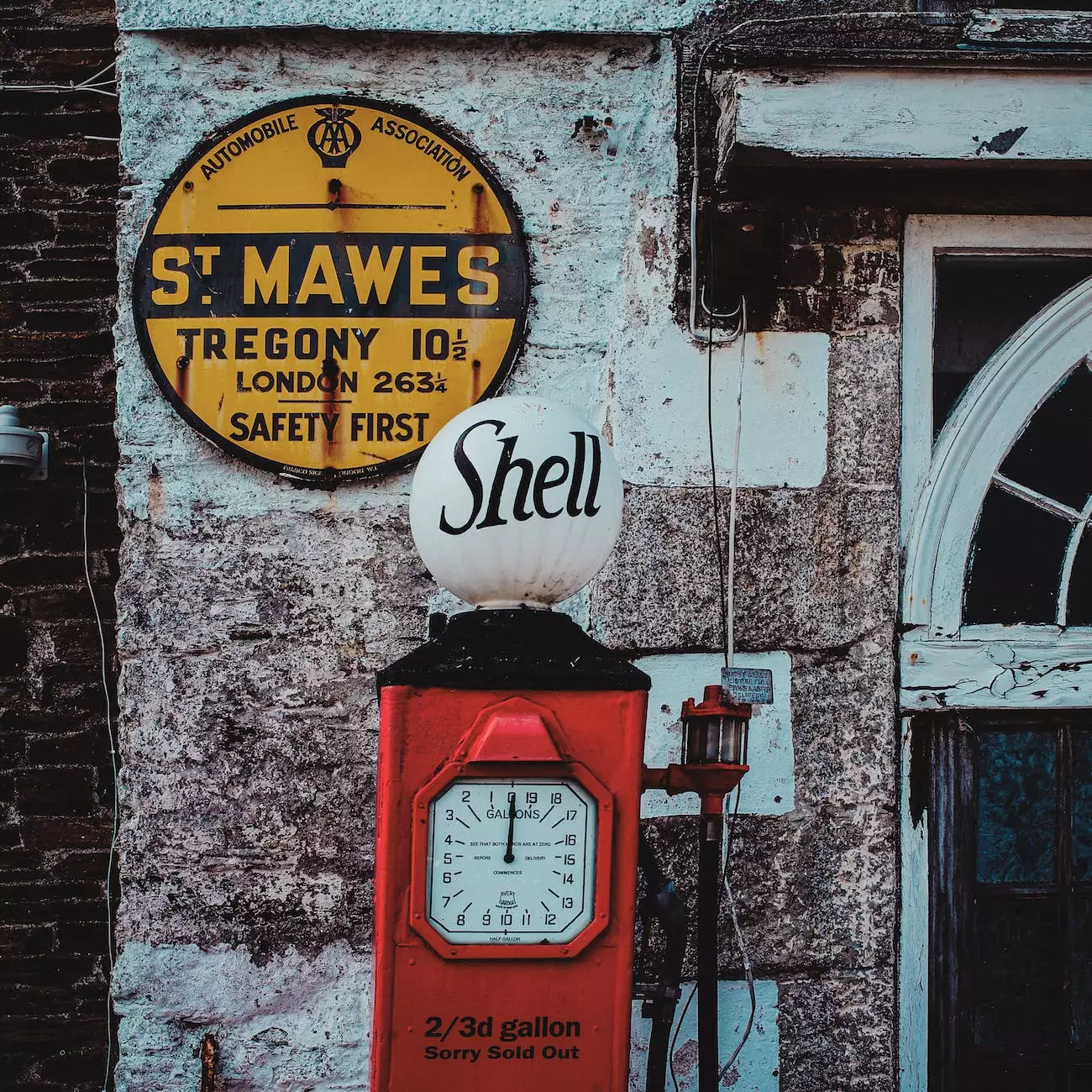VR in Oil and Gas Industry: Key Trends and Use Cases
Blog
Welcome to CI Advertising's comprehensive guide on Virtual Reality (VR) in the Oil and Gas Industry. In this article, we will explore the latest trends and use cases of VR technology in this evolving sector.
The Rise of Virtual Reality in the Oil and Gas Industry
In recent years, Virtual Reality has emerged as a game-changer in various industries, and the Oil and Gas sector is no exception. With its ability to provide immersive and realistic experiences, VR has revolutionized the way companies in this industry operate.
VR technology allows Oil and Gas companies to visualize complex processes, simulate dangerous scenarios, and conduct virtual training sessions, all in a safe and controlled environment. This not only enhances operational efficiency but also reduces costs and improves overall safety.
Key Trends in VR Adoption in Oil and Gas
Let's delve into some of the key trends shaping the adoption of Virtual Reality in the Oil and Gas industry:
1. Training and Simulation
VR-based training and simulation programs have become crucial for Oil and Gas companies. By replicating real-life scenarios, employees can practice handling equipment, navigating hazardous environments, and responding to emergencies without the need for on-site training.
These immersive experiences not only improve learning outcomes but also ensure a safer working environment. VR training not only saves time but also reduces costs associated with physical simulations and field exercises.
2. Remote Monitoring and Inspection
Virtual Reality allows Oil and Gas companies to remotely monitor and inspect their assets and infrastructure. By leveraging VR technologies, companies can access real-time data, perform inspections, and identify maintenance needs without physically visiting remote or dangerous locations.
This not only saves valuable time and resources but also minimizes risks associated with on-site inspections and improves overall operational efficiency.
3. Collaborative Design and Planning
VR facilitates collaborative design and planning processes in the Oil and Gas industry. Engineers, designers, and stakeholders can remotely work together in a virtual environment, making real-time changes, evaluating designs, and identifying potential issues before implementing them in the physical world.
This streamlines project timelines, reduces errors, and enhances decision-making processes, ultimately leading to improved project outcomes.
4. Marketing and Visualization
Virtual Reality offers unique opportunities for Oil and Gas companies to market their products and services. By creating immersive experiences, companies can showcase their assets, projects, and capabilities to potential clients and investors.
VR simulations enable stakeholders to explore oil rigs, refineries, and production sites in an interactive and engaging manner. This not only helps in attracting new business but also enhances brand reputation and differentiation in a competitive market.
Use Cases of VR in the Oil and Gas Industry
Let's explore some of the practical use cases of Virtual Reality in the Oil and Gas sector:
1. Safety Training and Emergency Response
Oil and Gas companies are leveraging VR technology to train employees in safety protocols and emergency response procedures. VR simulations allow workers to experience and navigate hazardous situations, improving their preparedness and minimizing risks.
By providing realistic training scenarios, companies can ensure that workers are well-equipped to handle emergencies, resulting in enhanced safety measures and reduced incidents.
2. Asset Visualization and Maintenance
Virtual Reality enables Oil and Gas companies to visualize their assets, such as offshore platforms or pipelines, in a virtual environment. This allows engineers and maintenance teams to identify potential issues, plan maintenance schedules, and optimize asset performance.
Furthermore, VR facilitates the remote monitoring of equipment and infrastructure, helping companies detect anomalies and address maintenance needs promptly, thereby minimizing downtime and maximizing productivity.
3. Stakeholder Engagement and Investor Presentations
VR technology has transformed the way Oil and Gas companies engage with stakeholders and present their projects. By creating immersive virtual experiences, companies can captivate investors and stakeholders, providing them with a realistic preview of upcoming ventures.
Investors can virtually explore oil fields, observe operations, and evaluate potential returns. This enhances transparency, fosters trust, and increases the likelihood of securing investment or partnership opportunities.
4. Environmental Impact Assessments
In the face of increasing environmental concerns, Oil and Gas companies are utilizing VR to conduct virtual environmental impact assessments. Virtual simulations enable companies to evaluate the potential consequences of their projects on the environment and explore alternative solutions.
By adopting sustainable practices and showcasing their commitment to environmental stewardship, companies can proactively address concerns, align with regulatory requirements, and strengthen their reputation as responsible corporate entities.
Take Your Oil and Gas Business to the Next Level with VR
As the Oil and Gas Industry continues to embrace Virtual Reality, companies that incorporate this innovative technology into their strategies will gain a competitive edge.
At CI Advertising, we specialize in helping businesses navigate the evolving marketing landscape. Our team of experts can assist you in leveraging the power of VR for your Oil and Gas marketing and advertising initiatives.
Contact us today to discover how CI Advertising can help your business unlock the potential of VR and fuel your success in the Oil and Gas industry.




